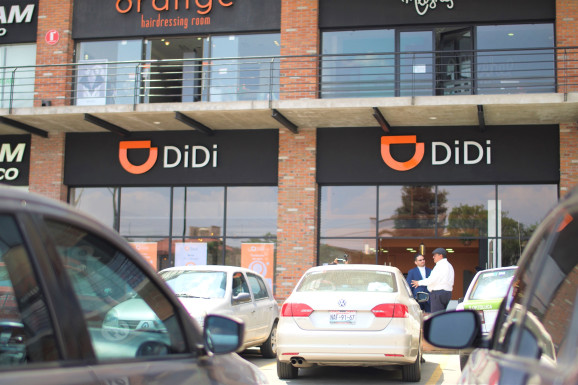 EMERGING TECH
EMERGING TECH
 EMERGING TECH
EMERGING TECH
 EMERGING TECH
EMERGING TECH
Showing China’s growing presence in car-related tech ventures, Chinese ride-hailing giant and Uber Technologies Inc. rival Didi Chuxing Technology Co. is planning an initial public offering, and emerging Tesla Inc. rival Guangzhou Xiaopeng Motors Technology Co. Ltd., better known as Xpeng, has raised $500 million in new funding.
Although little known in the U.S., Didi has emerged to be Uber’s main competitor across multiple markets, including Japan, Mexico, Chile, Brazil, Australia, Hong Kong, Taiwan and Colombia. The company dominates the mainland Chinese market, where it acquired Uber’s local arm in 2016 in exchange for Uber taking a stake in the company.
According to Pandaily, Didi is considering an initial public offering in Hong Kong by the end of the year on a valuation of more than $80 billion. Like Uber, Didi also offers food delivery, bicycle-sharing and various other complementary services to an estimated 550 million users worldwide.
Coming into its IPO, Didi has raised approximately $21.2 billion including megarounds of $5.5 billion in April 2017 and $7 billion in June 2016. Notable investors include SoftBank Group Corp., Toyota Motor Co. and Booking Holdings Inc. Didi also has ambitions in the self-driving car business, having established a research and development center in Mountain View, California, in March 2017.
A successful IPO for Didi could also benefit Uber itself through its stake in the company. Exactly what percentage of Didi Uber owns is not clear. Uber took an 18.8% stake in Didi as part of its Uber China deal, with that stake diluted to 15.4% following subsequent fundraising by Didi as of April 2019.
The combined assets of Didi and Uber China were valued at $35 billion as of the deal in 2016, meaning that potentially the IPO could see Uber roughly double the value of its stake, or more if Didi’s stock takes off post-IPO. The potential profit would be good timing given that it will come in a year that Uber has struggled from the impact of COVID-19. Uber has laid off 6,700 employees and shuttered 45 offices worldwide in recent months in an attempt to reign in costs amid declining demand.
As for Xpeng, although it doesn’t competed with Telsa on the global stage as yet, it’s often said to be China’s Tesla and the company is finding strong institutional support.
The company’s $500 million Series C+ round, which came from a group of investors that included Aspex, Coatue, Hillhouse Capital and Sequoia Capital China, is a follow-on of a $400 million round in November.
Xpeng launched its P7 model, a competitor to Tesla’s Model 3 in April with technology under the hood powered by Nvidia Corp.’s DRIVE AGX Xavier platform. The P7 leverages Nvidia from end to end including artificial intelligence infrastructure for the development of Xpeng’s own self-driving deep neural networks, Nvidia DRIVE OS is used to allow Xpeng to run its proprietary autonomous driving software and Nvidia’s Xavier Deep Learning Accelerators for AI inference used in Level 3 operation.
While competing directly against Tesla in mainland China, Xpeng may have international expansion ambitions. It gained a U.S. National Highway Traffic Safety Administration permit to test the P7 on U.S. roads in March.
Including the new funding, Xpeng has raised an estimated $2.2 billion to date. Previous investors include Xiaomi Inc, Foxconn, IDG Capital, Alibaba Group Holding Ltd. and Morningside Venture Capital.
THANK YOU